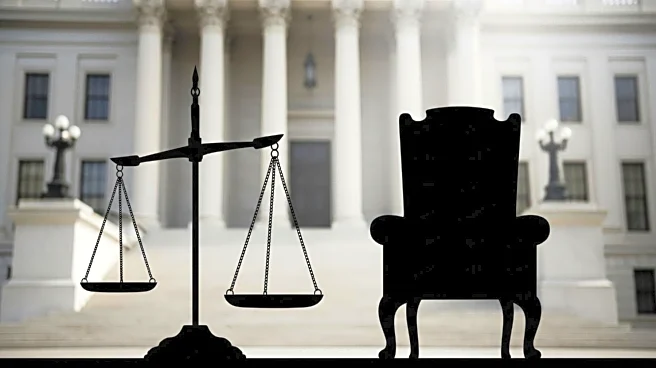What's Happening?
The Supreme Court is reportedly moving towards endorsing the unitary executive theory, which could significantly expand presidential power. This theory, rooted in conservative legal thought from the 1980s, suggests that the president should have total control over the executive branch, including the ability to remove federal officials at will. Recent actions by President Trump, such as issuing numerous executive orders and attempting to shut down federal agencies, appear to be testing the limits of this theory. The Supreme Court has already struck down statutory limits on the president's ability to remove officials, indicating a shift towards greater presidential control.
Why It's Important?
The potential endorsement of the unitary executive theory by the Supreme Court could lead to a significant shift in the balance of power within the U.S. government. It may diminish the regulatory role of the government and alter the functioning of independent agencies, impacting sectors like finance, consumer protection, and civil rights. This shift could centralize power in the presidency, affecting the checks and balances that have traditionally governed U.S. politics. Stakeholders such as government employees, regulatory bodies, and political opponents may face increased challenges as presidential authority expands.
What's Next?
If the Supreme Court officially endorses the unitary executive theory, it could lead to further legal challenges and changes in federal governance. The court's decisions may prompt legislative responses or efforts to redefine the scope of presidential power. Political leaders and civil society groups may mobilize to address the implications of this shift, potentially leading to debates over constitutional amendments or new legislation to restore checks and balances.
Beyond the Headlines
The endorsement of the unitary executive theory raises ethical and legal questions about the concentration of power and the potential erosion of democratic principles. It could lead to long-term shifts in how the U.S. government operates, affecting public trust and the role of federal institutions in safeguarding public interests.









